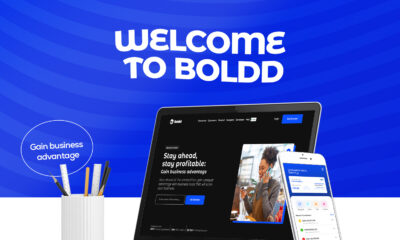Despite the global economy taking a hit amid the pandemic, the number of companies attaining the one billion valuations appears not to be slowing down. Consequently, the emerging unicorns have hit record levels backed by several factors.
Data acquired by Finbold indicates that the number of new global unicorns has spiked 491% between Q2 2020 and Q2 2021 from 23 to a staggering 136. During the first three months of this year, the figure stood at 113, representing a growth of 140.4% from 2020 Q4’s 47 unicorns.
Between Q2 2016 and the second quarter of this year, the number of companies to attain a billion-dollar valuation grew by 871%. During the period, the least number of unicorns was recorded in Q4 2016 at 10. The data on the number of newly-born unicorns is provided by the tech market intelligence platform CB Insights.
Factors driving unicorn growth
The spike in unicorns has been fuelled by increased funding, high levels of innovation, high-quality talent, and the ability to sell to a large market. Furthermore, companies attaining the unicorn status have either disrupted existing markets or created entirely new markets backed by technological innovation and smart market strategies.
The significant growth of unicorns emerged amid the coronavirus pandemic that impacted the global economy. At some point, the pandemic resulted in slowed funding but picked up in the second quarter of last year.
Most of the unicorns that emerged amid the pandemic capitalized on the newfound urgency of online integrations. In general, the pandemic has accelerated the adoption of online technologies. However, the companies had already recognized the need to shift online before the health crisis ushered in clients and investors.
Additionally, most unicorns have missed the chance to go public while preferring to take advantage of the plentiful private capital from hedge funds, mutual funds, and corporate venture capital firms.
Notably, during the last year, the IPO sector has witnessed a boom. Most companies usually avoid the IPOs route to avoid the risk of devaluation, especially if the public market thinks a company is worth less than its investors. Investors and startups also do not want to deal with the hassle of going public because of increased regulations.
Buyouts have also become popular, contributing to the billion-dollar valuation of these companies. Most of the big firms acquire many startups to diversify their business and handle competitors in the sector.
Venture capital’s role in unicorn growth
At the same time, the number of unicorns reflects the nature of venture capitalists who primarily depend on fast-growth strategies for a startup’s development.
Such an approach encourages investing large amounts of money in every round of financing to capture the most significant possible market share as soon as possible. This also prevents the emergence of substantial rivals in the marketplace. In the end, the unicorn company’s valuation skyrockets with every round of financing.
With an increased valuation, the company’s focus is on sustaining profitability. Although profits and growth don’t go hand in hand, the companies must build sustainable development rather than opt for a quick, short-sighted bump in profits.
Moving forward, the ever-increasing supply of capital to the largest VC-backed companies will potentially continue to fuel this activity for the next few years. In return, most of the companies will have a better chance of hitting unicorn status. However, to keep growing, unicorns need to develop their dynamic capabilities constantly.


 Forex4 weeks ago
Forex4 weeks ago
 Naira4 weeks ago
Naira4 weeks ago
 Billionaire Watch3 weeks ago
Billionaire Watch3 weeks ago



 Naira4 weeks ago
Naira4 weeks ago






 Naira3 weeks ago
Naira3 weeks ago


 Naira2 weeks ago
Naira2 weeks ago






 Naira2 weeks ago
Naira2 weeks ago
 Economy4 weeks ago
Economy4 weeks ago





















